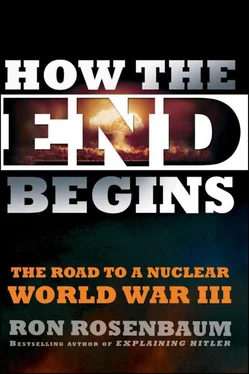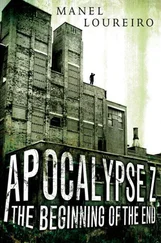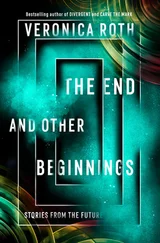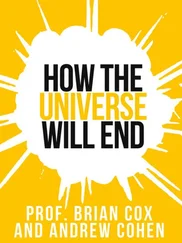“But some did decide at that point not to sign?”
“Some would not, some could not do it.”
“Did you talk to them about it?”
“I didn’t personally know anyone. Some people signed and were willing to do it, but they were so rattled by the sort of colossal weightiness of the responsibility that they couldn’t even turn the keys in training. I mean they would lose their composure in these simulators at Vandenberg, where you’re just going through computer-based mock simulation training, on everything from fighting a fire in the capsule to implementing a DEFCON order that puts you on a higher alert to actually launching missiles. And as you know it’s a very straight, checklist-driven process. For the final launch there’s decode the message, compare the codes in the message with the codes in your safe, and figure out the war order that you have to then carry out very, very quickly.
“And that’s a culmination of a ‘ride’ as we call it. A simulated ride, which would take sometimes hours but certainly an hour or two longer. It starts out with some innocuous event like maintenance—a missile breaks down and you have to call in maintenance and then it turns out there’s a security breach and you kind of go on higher alert locally…”
“It’s a checklist-driven process where launch is just the last item.”
“Yeah. Absolutely. You have to use some judgment, though, to decide which checklist you ran and which one to break away from, what the priorities are, things like that. But it gets very tense, very nerve-racking even for the calmest of people. Lights and warning sirens and warble tones and all that going off. Maybe you have to put on a mask, stuff like that. And you walk up through this escalation of commands like Pavlov’s dog. You literally go through it and you know what’s coming next and I did this scores of times.
“Some people just couldn’t do any of that. They got so rattled, particularly when it reached the point where you have to carry out a war plan even though it’s mostly make-believe.”
“Even just in the simulator?”
“Some of the calmest, I mean I knew people when they were washing out. They were seasoned officers. The training reproduced the tension of it some way, of what it was like. The pressures…”
“Made it so it functions as a simulacrum of the real thing, if it made people wash out.”
“Yeah at some level it succeeded in that. What they came to appreciate was how sterile and formulaic that really is and how unrealistic it really is and how you’re sort of protected from the real human buzz and confusion that we actually have happening in the real world, because there were always, you know, these unexpected things and they surprised people.”
“Right, and that Russian Colonel Petrov who saved the world I guess…?” I was speaking of the Colonel Petrov who reacted to what seemed like definitive electronic sensor data that a nuclear attack from the U.S. was under way in 1983.
“Yeah, he completely violated all the human checklists.”
“And Major Hering, here. He asked a question that wasn’t on the checklists.”
“How do we know that a launch code comes from a sane person? It cost him his career,” said Blair, who had been aware of Major Hering’s case and in touch with him sporadically.
“And we still don’t have an answer.”
“We still don’t have an answer.”
THE DREAM OF ZERO AND THE PLAN: RICHARD BURT’S CONVERSION
Is Zero realistic, possible? One could get carried away with the force and fervor of Blair’s argument that there is no middle ground. But to really assess the realism of the abolitionists’ dream, it makes a difference whether you argue backward from Zero or forward toward it.
If you argue backward from the imagined achievement of Zero, you are forced to picture a moment, however distant in time, in which the last remaining possessors of the last remaining nuclear weapons willingly hand them over to some international authority that proceeds to disable and destroy them. Or holds on to them as enforcement tools.
You have to imagine an inspection and surveillance regime with powers so forceful and intrusive it can break down doors anywhere in the world without notice, find and seize clandestine nukes before they can be used, and arrest and try violators in some international tribunal to enforce Zero.
You have to imagine that no nations have the capacity to evade inspection, hide weapons, or to put in place a plan to reassemble components and rearm themselves with nuclear weapons at a moment’s notice.
You have to imagine that there will be no conventional wars in which the side in danger of losing will, in a desperate last-ditch resort, seek to reassemble nukes. Conceivably you would have to suppress publications that instruct how to construct a nuclear weapon. A dictatorship of Zero.
Which compels you to imagine that there will be no unsettled regional or national, ideological or theological conflicts that will result in conventional wars in which it is more than likely a losing side would somehow quickly find a way to assemble or reassemble nuclear weapons, the ones they haven’t managed to hide in the first place.
All of which requires you to imagine a virtual transformation of human nature and a voluntary transfer of national power to what in effect will be the unappealable judgments of a world government.
Doesn’t sound likely, does it, as a practical matter? The anti-Zero case is strengthened beyond the practical to the moral dimension: there were 60 million more deaths from wars in the twentieth century before Hiroshima than in the same span of years after.
But the Zero advocates have answers. They concede that the moment of Zero won’t arrive instantaneously tomorrow, that the world as it is, is not ready for Zero. That a case can be made that things look different if you argue going forward toward Zero. For instance, there is the case that James Acton and George Perkovich make in their book, Abolishing Nuclear Weapons , [305]a 130-page study published in 2008 by the London-based International Institute for Strategic Studies. Acton—formerly one of the co-writers of the influential armscontrolwonk.com blog, is a fellow at the Carnegie Endowment for International Peace. Acton and Perkovich are unflinching in their intellectual honesty about the difficulty of ever achieving abolition. They admit it would require a virtual world government and for all current regional conflicts—India–Pakistan, China–Taiwan, Israel–Palestine to be resolved—plus methods in place for defusing any future conflicts.
But the most persuasive argument they make is a cultural one: that as the world moves toward Zero by means of sharper and sharper reductions, and works together each step of the way toward solving the problems of inspection and verification procedures, presumably including the development of advanced detection technology, this diminution of the role of nukes and concomitant cooperation will draw the world into a different mind-set.
Bruce Blair’s Global Zero Initiative [306]is meant to achieve exactly that. It offers a four-step plan for reductions and destruction of warheads over a twenty-year timetable to get to Zero. Can human nature, much less human governance and culture, change so radically in that period of time? On the other hand, if it doesn’t, can we be sure human nature, human civilization will survive that long?
In a review of the Acton-Perkovich pro-abolition book, [307]Elbridge Colby, recently a START-follow-on-treaty negotiator, wondered whether Zero was an unquestioned good: “Such a prospect seems neither plausible nor particularly appealing. Which leads to the question: why again are we trying to do this? The authors state that their ‘ultimate reason’ is to try to ‘reduce the danger of sudden mass annihilation.’ But opponents of abolition share that goal—they just think that retaining nuclear weapons is more likely to prevent that unfortunate outcome.”
Читать дальше











